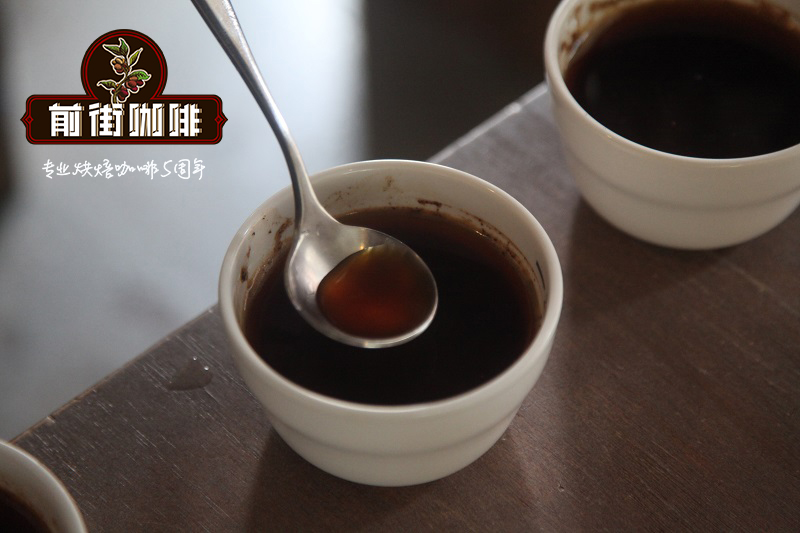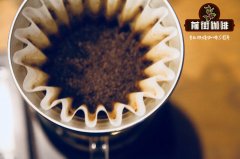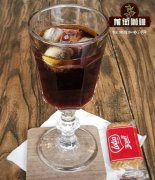Ninetyplus coffee90+ Coffee introduction Ninety plus90+ Coffee grading

Professional coffee knowledge exchange more coffee bean information please follow the coffee workshop (Wechat official account cafe_style)
What is NINETY PLUS 90 +?
Ninety plus is an internationally renowned coffee bean production and sales company, and is famous for providing rare and unique raw coffee beans. In addition to working directly with coffee farmers, it also has a 134-hectare coffee farm in Panama. Since its inception, 2007 has reached more than 40 countries around the world.
Joseph Brodsky officially founded Ninety plus in 2007, and since the next year, we have seen traces of Ninety plus winning awards in large and small coffee competitions around the world. In the 2013 WBC World Barista Competition, six finalists used Ninety plus raw beans from Italy, Korea and Canada. Exquisite cultivation and processing of raw beans, excellent coffee varieties and unique grading system make Ninety plus a top and unique representative of raw beans in the market.
In 2004, with the rise of geisha in Panama, the unique aroma set off an upsurge in the search for excellent varieties all over the world. Joseph Brodsky, like other raw bean producers, researchers and enthusiasts, went deep into the remote mountains of Ethiopia and went to the wild primeval forest where coffee originated in search of Geisha tree species. Although he failed to get what he wanted in the end, he believes that there are still many excellent and unknown native varieties in so many native species forests.
It may not be discovered because the remoteness has not been discovered, or because it has not been carefully treated and cultivated. So the next year Joseph Brodsky immediately invested a lot of effort in Ethiopia, he looked for valuable coffee beans and worked with local estates to improve and refine the raw bean treatment process, and to develop a Profile Processing raw bean system so that each bean can play its complete flavor.
In 2009, Joseph Brodsky began to grow native Ethiopian geisha in Panama. He bought land, created a "Ninety Plus Geisha Estate" estate, and built Ninety plus Sensory Room at the same time. In recent years, he has developed SolkilnTM special treatment, and Ninety Plus, which has been innovative in every aspect of raw bean processing, has taken the lead in the coffee boutique market.
In 2004, with the rise of geisha in Panama, the unique aroma set off an upsurge in the search for excellent varieties all over the world. Joseph Brodsky, like other raw bean producers, researchers and enthusiasts, went deep into the remote mountains of Ethiopia and went to the wild primeval forest where coffee originated in search of Geisha tree species.
Although he failed to get what he wanted in the end, he believes that there are still many excellent and unknown native varieties in so many native species forests. It may not be discovered because the remoteness has not been discovered, or because it has not been carefully treated and cultivated. So the next year Joseph Brodsky immediately invested a lot of effort in Ethiopia, he looked for valuable coffee beans and worked with local estates to improve and refine the raw bean treatment process, and to develop a Profile Processing raw bean system so that each bean can play its complete flavor.
In 2009, Joseph Brodsky began to grow native Ethiopian geisha in Panama. He bought land, created a "Ninety Plus Geisha Estate" estate, and built Ninety plus Sensory Room at the same time. In recent years, he has developed SolkilnTM special treatment, and Ninety Plus, which has been innovative in every aspect of raw bean processing, has taken the lead in the coffee boutique market.
Ninety plus's excellent varieties of coffee
In 2004, Joseph Brodsky Coffee began his career in search of the best geisha tree species. He chose the original species (Heirlooms) with good flavor in Ethiopia and planted the Ethiopian native geisha (Heirlooms Geisha), the Ethiopian native variety Ethiopia Heirlooms and the Panamanian geisha Panama Geisha on the estate NPGE (Ninety Plus Geisha Estate) in Panama.
Ninety plus unique flavor classification and password classification
Ninety Plus coffee is classified according to "fruit flavor intensity", which is different from traditional water washing (Washed), honey treatment (Honey) and sun treatment (Natural). It is also classified as W2, H2 and N2, but the fruit flavor grades created by different treatments are different, so you may drink sun-treated or water-washed coffee beans in the honey flavor "H2" classification.
Qianjie Coffee also has a masterpiece of 90 +: candlelight, roasted to medium and shallow, brewed at a water temperature of 90 degrees for about two minutes, with a special floral aroma and good nectarine, tropical fruit flavor, as well as oak barrel aroma.
Qianjie coffee: Guangzhou bakery, the store is small but a variety of beans, you can find a variety of unknown beans, but also provide online store services. Https://shop104210103.taobao.com
Important Notice :
前街咖啡 FrontStreet Coffee has moved to new addredd:
FrontStreet Coffee Address: 315,Donghua East Road,GuangZhou
Tel:020 38364473
- Prev

The Development of Organic Coffee: how is Organic Coffee? why do some people buy Organic Coffee beans at High prices
Professional coffee knowledge exchange more information about coffee beans Please follow the coffee workshop (Wechat official account cafe_style) organic coffee, which is produced by organic farming. To understand organic coffee, one must first understand the concept of organic farming (organic farming), which originated in 1924. In 1924, a group of farmers who were concerned about the future of agriculture turned to Germany at that time.
- Next

Black coffee beans how to drink black coffee beans which brand of good black coffee is suitable for what coffee beans
Professional coffee knowledge exchange more coffee bean information please follow the coffee workshop (Wechat official account cafe_style) pour the black coffee beans into the grinder, Winter asked: do you know how to taste black coffee more delicious? What do you think? First of all, when you go into the cafe and order coffee from the barista, you should pay attention to which kind of coffee is more flavorful. Which coffee is a population?
Related
- Guji coffee producing area of Guji, Ethiopia: Humbela, Shakiso, Wulaga
- What is the most expensive variety of Qiloso in BOP multi-variety group?
- How to store the coffee beans bought home?
- Why are Yemeni coffee beans so rare now?
- Ethiopian Sidamo all Red Fruit Sun Sun Santa Vini Coffee beans
- SOE is mostly sour? What does it mean? Is it a single bean? what's the difference between it and Italian blending?
- Is Italian coffee beans suitable for making hand-brewed coffee?
- How to choose coffee beans when making cold coffee? What kind of coffee beans are suitable for making cold coffee?
- Just entered the pit to make coffee, what kind of coffee beans should be chosen?
- Can only Japan buy real Blue Mountain Coffee? What are authentic Jamaican Blue Mountain coffee beans?

